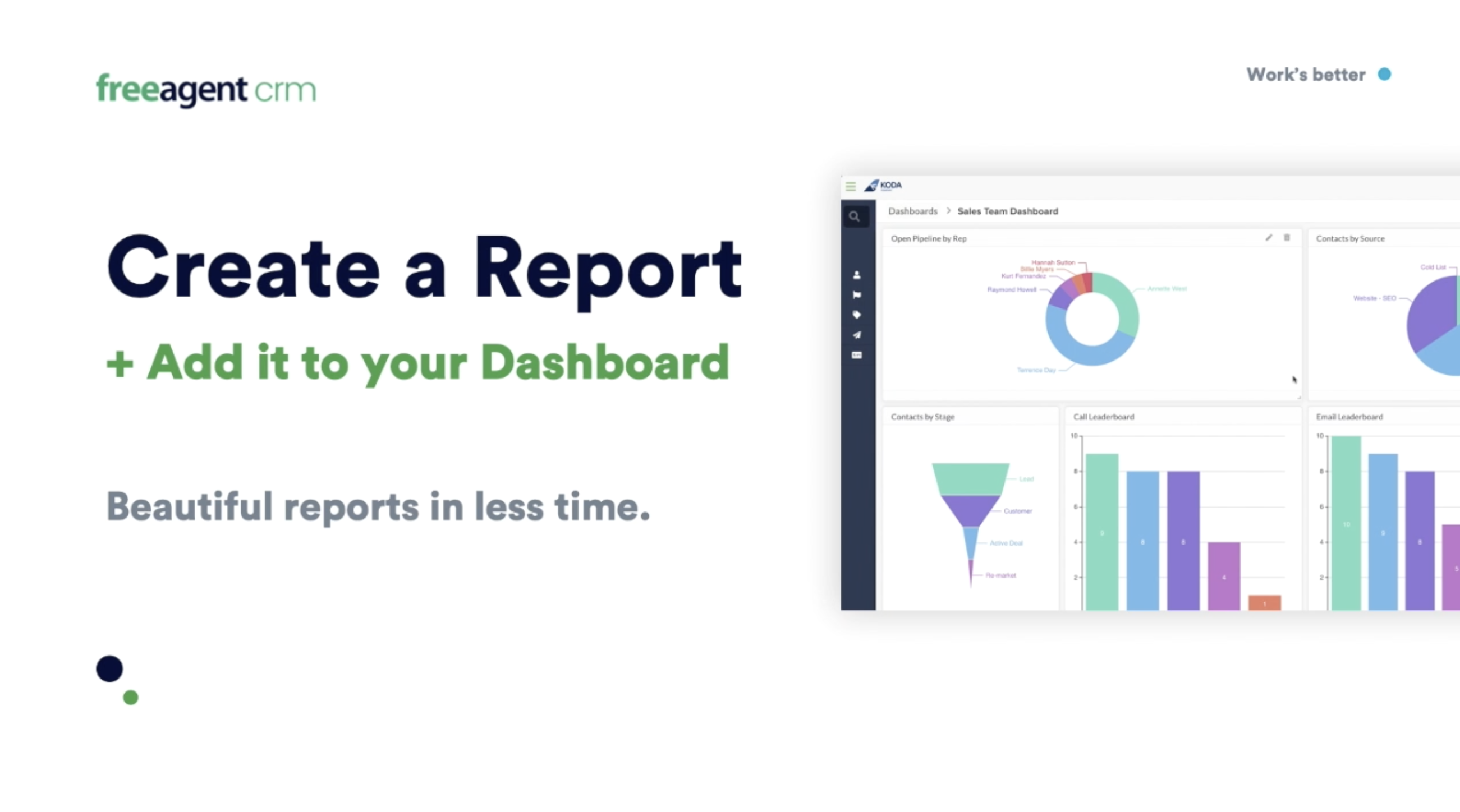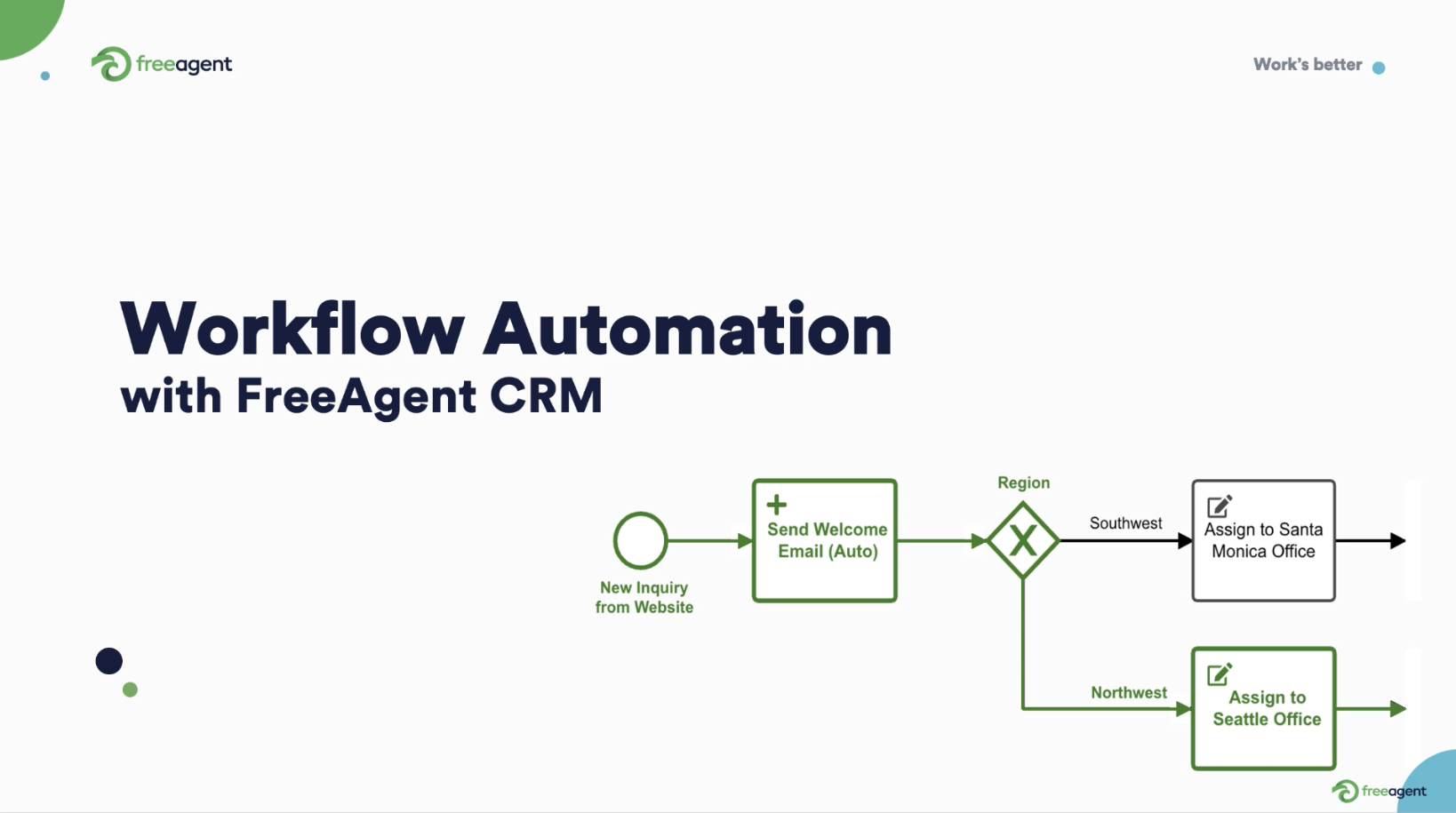When implementing CRM (customer relationship management) software, there are many important decisions to make.
Choosing the right CRM administrator may be the most important one. That is because your CRM administrator will have a huge impact on how your CRM system is used every day.
Your CRM administrator will:
- Help drive adoption
- Set your CRM strategy
- Ensure access and compliance
- Train out new business processes
- Organize your CRM to fit your unique business needs
- Be a key resource for the entire company regarding your CRM’s use
What is a CRM administrator?
A CRM administrator serves as a bridge between your CRM system and the rest of your team.
While this requires some technical savvy (especially if you are using an older, clunkier CRM system), it also requires an in-depth knowledge of your business processes.
This role is well-suited to your marketing and sales operations leaders. If you’re implementing a CRM for your sales team, for example, your sales operations leader likely has the best understanding of your sales business process and can help inform decisions about how to implement your CRM platform to maximum effect.
They are also a resource your sales team is used to turning to for support, making their job as a liaison and advocate for your CRM a natural fit.
If you are targeting CRM implementation on a grander scale, incorporating many different teams, you may want to have a CRM admin for each team.
Alternatively, you could hire a dedicated CRM administrator who works closely with the ops leaders from each of your teams to ensure alignment.

Do I really need a CRM administrator?
The short answer is yes. One of the biggest mistakes many companies make when implementing a CRM is not thinking enough about CRM administration.
It can be tempting to think that since CRM upkeep and maintenance is everybody’s job, then CRM administration is a shared responsibility.
While it is certainly true that everyone using your CRM is responsible for managing your CRM in some regard, failing to designate a CRM admin will quickly lead to disjointed work processes, siloed/inaccurate data, and inconsistent adoption.
The real question you should ask is whether you need a dedicated CRM admin or if these duties can be added to the responsibilities of an already existing role.
Dedicated vs. expanded responsibilities
There are a few key factors that determine whether you need a dedicated CRM administrator, or if simply expanding the responsibilities of an existing role will do.
- The CRM you choose: If you go with an older CRM, or one that requires a lot of third-party support to make changes and adjustments, you may need a dedicated admin to handle the technical aspects and constant back-and-forth.
On the other hand, if your CRM is modern and user-configurable, it will take less time to learn, maintain, and adjust — allowing you to fold these duties into the existing responsibilities of one or your current ops leaders.
While this may seem like adding work to an already challenging role, the efficiency gains that a modern CRM provides will more than offset this in the long run.
Allow some time for this person to familiarize themselves with the software and support the initial implementation for greater CRM effectiveness.
- Who is using the CRM: If you are implementing a CRM for a single team (sales, marketing, product, or development), assigning a single member of that team to be the CRM admin is likely enough.
If you plan a larger rollout that involves several teams (or a single team with many users), there are other factors to consider.
For a modern CRM, assigning a member from each team to be an administrator is a good start (or one admin for every 50 users).
You may want to assign a lead CRM admin in this case, someone who can help ensure overall alignment between admins, but this doesn’t have to be a full-time, dedicated position.
Your operations leader or Chief of Staff would be a good fit for this role as they already have an understanding of many of your business processes.
If you are rolling out an older CRM, or one that requires third-party engineers to implement and support, you’ll want to hire a dedicated CRM administrator to handle the duties.
You may also want to assign a member from each team to support that dedicated admin or have a dedicated admin for each team (e.g., one admin for every 30 users).
- Cost investment: Hiring a dedicated CRM administrator is expensive. The average salary of a CRM admin is 100k a year – and if they have a technical background or extensive experience, they cost even more.
Of course, depending on the CRM you choose and the number of users your CRM will support, this can be a justifiable cost.
Just make sure to calculate this salary into the overall cost of your CRM when evaluating your CRM ROI.
There’s one more thing to consider when hiring a dedicated CRM admin — knowledge transfer.
If only a single person in your company understands the administrative duties of your CRM, you become vulnerable.
The days of an employee staying with a company for their entire career are long over.
Even if you do have great employee retention, people can get sick or leave for other reasons. People also need time off for vacations or personal leave.
To protect against this, share responsibilities regardless of your admin structure. Cross-training is a great team-building exercise and protects you from the winds of change.


What are the responsibilities of a CRM administrator?
Now that we know what a CRM administrator is, let’s dig into what they do.
- Security and permissions: One of the biggest benefits a CRM provides is information access and centralization. To do this effectively and securely relies on various levels of permissions.
Your CRM admins manage and control these permissions. They work closely with your information security team to lay out your access structure based on your business’s unique needs.
They are also responsible for removing access when an employee leaves your company or changing access when employees switch roles.
Your CRM admins are also the resource your employees turn to when they forget their passwords or get locked out of their accounts.
- Customization: While older CRM platforms require third-party engineers and outside support to customize, modern CRMs have many aspects that are user-configurable.
In either case, your CRM admin will either be responsible for overseeing the customization or customizing the CRM themselves.
Customizations include the interface and layout — colors, unique icons, app names, etc. – as well as more advanced features such as role-based access controls and app configuration.
Customization is an ongoing process that requires input from all members of the team as you discover the best way to support your specific business processes.
That is why operational roles are so well-suited to CRM administration.
- Automation and workflow: CRM efficiency gains come from the automation and workflow tools they provide.
Just as with customizations, the type of CRM you have (old vs. modern) will dictate whether your CRM administrators will oversee building out your automations and workflows or do the work themselves.
- Education: Your CRM admins know your CRM better than anybody. It will be their responsibility to educate and train your team on the use, features, and best practices of your CRM.
This may involve creating training materials such as written guides and video tutorials.
- Adoption and expansion: A CRM is most effective when everybody is using it. Your CRM admins drive adoption and eliminate obstacles to success.
- Data hygiene and upkeep: While good CRM data maintenance is everybody’s job, it will be on your CRM admins to ensure compliance. They create the systems of checks and balances that your team follows and keep the CRM data clean.

How to choose the right CRM administrator
Giving how important the role of a CRM administrator is to the overall success of your CRM (and your business), selecting the right person for the job is crucial. The following skills are valuable to the role:
- Self-starter: Few people in your company will understand your CRM well, so guidance and direction will be limited. This means your CRM admins need be self-starters who can work independently.
- Curious and adaptable: While using a CRM can be pretty straightforward (especially with a modern platform), getting the most out of it requires experimentation.
Your CRM admin should constantly seek out new ways to do things and leverage different systems and tools – both old and new. This curiosity requires leadership support to nurture and grow.
- Familiar with your business processes: While your CRM admins don’t need to know your sales, marketing, and product/development processes to the letter, they do need to be familiar enough to see areas for refinement.
Setting up automations and workflows requires knowing the different tools and steps involved in each process.
This can be gained through partnering with the leads of each department, but a cursory understanding will help with alignment.
- Interpersonal skills: Your CRM admins are leaders, teachers, and partners to everyone using your CRM. You want someone who is not only liked but respected to fill this role.
Good communication skills (listening and speaking) are a must in addition to empathy, conflict management, delegation, employee evaluation, and project management skills.
- Technical savvy: This may be the least important skill a CRM admin needs to have (especially if you’re using a modern CRM) but it can still be helpful.
At the very least, you want someone who is comfortable with technology and appreciates the value software tools like CRM can bring to the table.
As mentioned earlier, ops leaders make excellent choices for CRM administrators. That said, department leads can also serve in this role well.
You could assign this job to a talented member or your team looking to take on new responsibilities.
However, support them with adequate training, the right messaging, and the authority to enforce compliance.
Evaluating success
How do you evaluate the success of your CRM admins when they are the experts? The same way you do with everything else — look at the numbers.
- Adoption: If your CRM admins are doing a good job implementing your CRM and demonstrating it’s value, your adoption rates should be pretty high.
There are several types of CRM adoption metrics you can assess such as logins/week, activities/day, reports created/month, and so on. - Cycle times: CRM tools are notoriously good at creating efficiency gains. That is where the bulk of their ROI comes from.
As more members of your team adopt your CRM you should see the cycle times of your sales and production processes decrease. - Reporting accuracy and accessibility: As your team begins to work within your CRM, visibility into your business processes should increase.
For example, knowing how many touchpoints it took to close a deal should be a pretty easy thing to assess.
Creating a report that provides this data for every deal in a quarter should not only be possible but accurate as well. - Revenue growth: Better business processes lead to better business performance, which should reflect in your bottom line.
You may not be able to say exactly how much is attributed to your CRM, especially if you are improving or growing your products and services, but you should see a noticeable impact. - Customer retention and expansion: The tools a CRM provides are great for creating happy customers.
They are also useful for uncovering growth and expansion opportunities.


FreeAgent enhances CRM administration better
FreeAgent makes CRM administration fun and easy – here’s why:
- User-configurable: FreeAgent CRM is user-configurable with zero code-based knowledge required.
Admins can make changes to forms and fields, menu items, branded elements, and so much more without the need for third-party engineers or outside support.
This allows for experimentation and refinement that is faster, cheaper, and easier. With FreeAgent CRM, you can streamline your work processes and adapt quickly to meet the unique needs of your business.
- Modern and intuitive: FreeAgent CRM is designed for today’s world of work. Activities like adding a contact or creating an account function exactly as you would expect them to, reducing the training time required to get your team up and running.
Our interface is sleek and modern, creating a digital environment your team will want to work in, driving adoption across the board.
- Support: At FreeAgent CRM, all of our customer service and support is in-house. This allows us to resolve issues faster and provide effective solutions to any questions you have — because nobody knows our software better than we do.
Get started with FreeAgent CRM today and discover for yourself why FreeAgent is the best CRM software platform on the market today.






